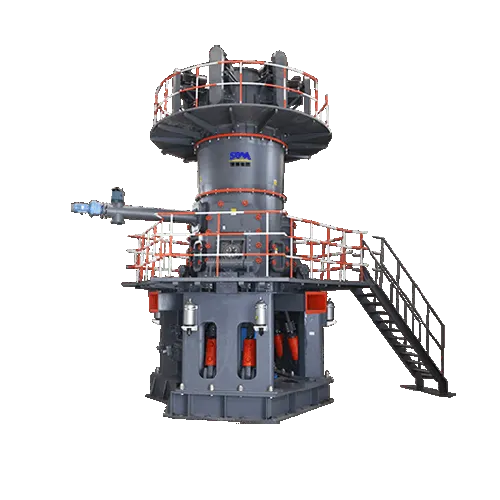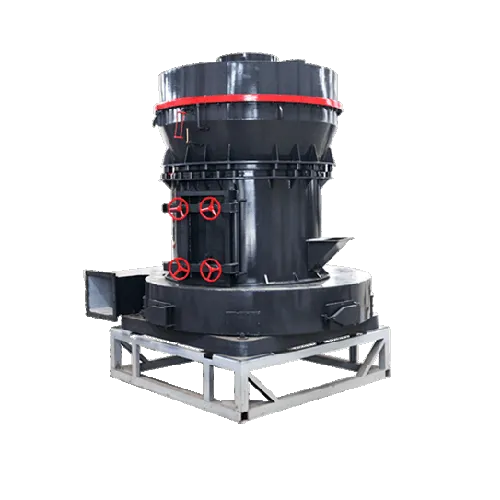Summary:In the mining field, bentonite is mainly used in metallurgy, casting, drilling and wastewater treatment, as an inorganic binder, thickener and rheology control
In the mining field, bentonite is mainly used in metallurgy, casting, drilling and wastewater treatment, as an inorganic binder, thickener and rheology control agent for aqueous media systems.

1. Foundry industry
The foundry industry mainly uses the plasticity and cohesiveness of bentonite, which can be used as a binder for the production of mold materials and a suspending agent for alcohol-based coatings. Most of the bentonite used in the foundry industry is sodium-modified by calcium-based bentonite. Sodium ions replace the calcium ions between the bentonite layers to improve its wet compressive strength, hot and wet tensile strength and reusability, thereby improving the quality of casting products And reduce the amount of bentonite.
At present, green sand modeling is the most used modeling method in the foundry industry. Bentonite, as the bonding material of green sand, has a direct impact on the performance of all aspects of green sand. Adding bentonite to alcohol-based coatings can increase the suspension of the casting coatings, increase the amount of gas generated by the casting coatings, and reduce the high-temperature crack resistance of the casting coatings.
Differences in domestic and foreign applications:
In foreign countries, in recent years, the bentonite consumed in the United States accounts for 13% of the foundry, and the European Union accounts for 24% of the total consumption. At the same time, modified bentonite has been used in foundry factories abroad as a binder. For example, ENVI binders have been used in Germany, the Netherlands and France.
In China, it is estimated that the current annual output and sales of bentonite products are about 2.7 million tons, of which about 10 million tons are used for foundry sand. And the domestic natural sodium-based bentonite resources are scarce, so most of them use artificial sodium bentonite as a binder in the foundry industry.
In addition, the domestic casting technology is not advanced, and the manufactured casting products are relatively low-grade, and there is a situation of low input and high output in the international market. Therefore, China should pay attention to these problems.
2. Petroleum drilling industry
The petroleum drilling industry mainly uses the dispersibility, suspension, cohesion and thixotropy of bentonite. Drilling mud can clean the bottom of the well and carry cuttings, cool and lubricate the drill bit and drill string, and balance the formation pressure during the drilling process, which is very important in drilling operations.
In the petroleum drilling industry, the water absorption, slurryability and thixotropy of calcium-based bentonite basically cannot meet its requirements, so it must be modified. Sodium ions or organic substances replace the exchangeable cations or structured water between the bentonite layers for sodiumization or organic modification, or effective methods such as adding inorganic or organic synergists. The adsorption, suspension and thixotropy of the modified bentonite are obviously improved and meet the requirements. It has good portability and rheology in drilling fluid, can effectively prevent corrosion and lubricate drilling; at the same time, it also has considerable cutting-lifting and viscosity-increasing effects. It can be used as a preparation of cement-in-oil slurry and excellent anti-high temperature jam release agent raw material.
Differences in domestic and foreign applications:
In foreign countries, most countries have made better developments in new drilling fluid systems. For example, compared with traditional drilling fluids, the HPWBM drilling fluid system can better inhibit the dispersion of clay and drill cuttings and reduce bit mud packs. Currently, the HP-WBM system has been used in the Gulf of Mexico, the continental United States, Brazil, Australia, and Saudi Arabia. And regions are applied. In addition, other oil-based drilling fluid systems and base-forming drilling fluid systems have also made corresponding progress, and overseas have their products in three categories of drilling-grade bentonite, untreated bentonite and OCMA bentonite.
In China, the output of bentonite used for high-grade drilling fluid is far from insufficient. Although my country is rich in bentonite resources, the bentonite used in drilling fluids currently supplied on the market in my country is basically OCMA grade bentonite. There is almost no untreated bentonite. There are not many products that can reach drilling grade bentonite. Need to rely on imports, its production and processing technology is far behind developed countries. At the same time, my country's sodium-based bentonite resources are limited, which cannot meet the requirements of bentonite for drilling fluids and must be modified and processed.
Before the use of bentonite for pulp-making in China, artificial sodium treatment will be carried out, and at the same time, appropriate enhancers and appropriate doses will be selected to reasonably increase the content of montmorillonite in bentonite, so as to achieve the purpose of improving the pulp-making performance. In the actual application process, the thixotropy of bentonite makes the equipment easily blocked and adds to the annoyance of maintenance management.
3. Metallurgical industry
Metallurgical pellets use the cohesiveness, swelling and cation exchange properties of bentonite. After bentonite and iron concentrate are bonded, there will be no chemical change, nor will it affect the chemical properties of pellets. The bonding properties will not change at high temperatures, so it is widely used in the bonding of metallurgical pellets at home and abroad. Agent.
Iron ore pellets are a method of agglomerating fine powdered iron concentrates. Bentonite is used as a binder for pellets to improve the spheroidizing properties of iron ore and increase the green strength. However, the addition of bentonite also reduces the iron content of the pellets. Therefore, in the pellet production process, the amount of bentonite should be controlled as much as possible. Therefore, some of the bentonite in practical application is modified. Sodiumization and organic modification are used to enhance its water absorption, dispersibility and swellability, so as to reduce the amount of bentonite.
Differences in domestic and foreign applications:
In foreign countries, bentonite has been widely used as a commonly used binder for pellets in recent years, and the average blending amount of bentonite has reached less than 1%. In the further study of the mechanism of bentonite in pellets, the theory of bentonite fiber structure proposed abroad was verified.
In the 21st century, my country's metallurgical pellets have been supported by national industrial policies and have also developed rapidly. However, my country's production technology is characterized by low iron content in pellets and excessive bentonite addition (1.5% to 3.5%). There is still a big gap with foreign technology (less than 1%). Therefore, domestic research and development of new low-cost binders should be made to improve the grade and quality of domestic pellets.
Bentonite is widely used in the production of pelletizing ore, the raw material of blast furnace ironmaking, because of its good dispersion suspension and bonding property. Bentonite used as pelletizing adhesive can optimize the pelletizing performance and the bonding force between raw pellets, accelerate the forming and growing of pellets and store the water inside pellets. It can significantly improve the falling strength, compressive strength, bursting temperature and compressive strength of dry pellets, but also introduce a lot of impurities such as Si and Al, and reduce the pellet grade. Therefore, the use of high quality and efficient bentonite in metallurgical engineering, reducing the dosage of bentonite, is the key to produce high quality pellets.
4. Mine wastewater treatment
In the treatment of mine wastewater, it uses the adsorption performance and ion exchange capacity of bentonite, and has a large specific surface area, which can be combined with other materials to form a mineral composite material.
Whether at home or abroad, a large amount of mine wastewater will be generated during the utilization and mining of mineral resources. Its pH value is low, and it contains heavy metal ions such as Fe2+, Mn2+, Cu2+ and Zn2+. Among them, the most extensive and harmful ones are Acid mine wastewater (AMD). AMD directly discharged into the water body will cause water acidification, and its heavy metal ions will be continuously enriched through precipitation, adsorption and biological chains, which will seriously affect the natural environment. Nowadays, research on the treatment of mine wastewater is becoming more and more important, especially for acid mine wastewater. The adsorption method has the advantages of simple operation, wide application range, and low cost.
In recent years, the mineral material bentonite-steel slag composite material has become a research hotspot in the treatment of mine wastewater. By mixing bentonite and steel slag into a bentonite-steel slag composite material to treat acid mine wastewater, the waste treatment can be achieved and the cost of mine wastewater treatment can be reduced.
Differences in domestic and foreign applications:
In terms of mine wastewater treatment, the current research technology at home and abroad is not much different. Only in the latest microbiological methods, domestic applications started late compared with foreign countries and are still in the research stage. Researchers at home and abroad are trying hard to find ways of governance, but the results achieved are relatively small.
In China, AMD's annual emissions are 3.6 billion tons, accounting for about 10% of the country's total industrial wastewater emissions, and the treatment rate is only 4.28%, so AMD's pollution has become a prominent pollution problem. Therefore, domestic research on mine wastewater treatment should be strengthened to reduce pollution in this area or reduce the generation of mine wastewater from the source.
Powdery bentonite has become a kind of high quality mineral material for wastewater treatment due to its large specific surface area, excellent adsorption and ion exchange performance. Theoretically, the powdery bentonite should have a better adsorption effect, but due to its water absorption, expansion and adhesion, the silt will bond together, significantly reduce the adsorption effect, and produce secondary sludge. In practical application, the powder bentonite is made into a certain shape to facilitate recovery and utilization: by the cross-linking of sodium alginate and calcium chloride solution to prepare spheroids; With the help of extrusion equipment to prepare the strip; With the help of 3D printing technology, bentonite is used as the printing material to make honeycomb adsorption bricks, etc. At the same time, the strength of the formed soil should be guaranteed for transportation and application.
5. Other applications
In addition to the above four main uses, bentonite has other applications:
Building Materials
Bentonite can absorb more than its own weight of water, so that its volume expands to several times or even tens of times of the original volume. After absorbing water to a certain extent, bentonite is equivalent to a kind of colloid, which has the property of water exclusion. Using this characteristic, bentonite can be used in waterproof materials. Typical examples are bentonite waterproof blankets, lightweight wall materials, impregnated coatings, and landfill barrier materials.
Agriculture, Forestry And Animal Husbandry
Bentonite is used as a soil amendment in agriculture and forestry. Bentonite can reduce manure being washed out by water and improve the storage capacity of manure and water, so as to improve soil and increase crop yield. When bentonite is mixed with fertilizer, it also has the effect of extending the duration of fertilizer.
Bentonite is used as a feed additive in animal husbandry, which can slow down the passage of feed in the gastrointestinal tract and promote the animals to fully digest feed to achieve the highest nutrient uptake rate.
Medical And Food Processing Industry
Bentonite has good water absorption, suspension, dispersity, adhesion and thixotropy, and is used as a preparation excipient and agent carrier in pharmaceutical industry. Bentonite has the dual function of adsorption and bacteriostatic or bactericidal, and has been used clinically as a drug to treat diarrhea and gastrointestinal ulcer. Bentonite is added to some ointments or pastes to thicken effectively. Bentonite is often used as an agent carrier because of its good adsorbability, which makes the agent play a long and stable role in human body. In conclusion, bentonite has great potential for medicinal use.
Bentonite is widely used in food industry because of its good adsorption and ion exchange properties. When refining animal and vegetable oil, the adsorption capacity of bentonite after acidification is enhanced, which can effectively remove impurities and decolorization in animal and vegetable oil. Adding bentonite in the winemaking process can clarify and stabilize the winemaking process. Bentonite used in the processing and refining of daily flavoring products (vinegar, monosodium glutamate, soy sauce, etc.) can effectively remove impurities or clarify, and even improve the nutritional value of flavoring products.
Read More About Bentonite
Sodium Bentonite Vs Calcium Bentonite



